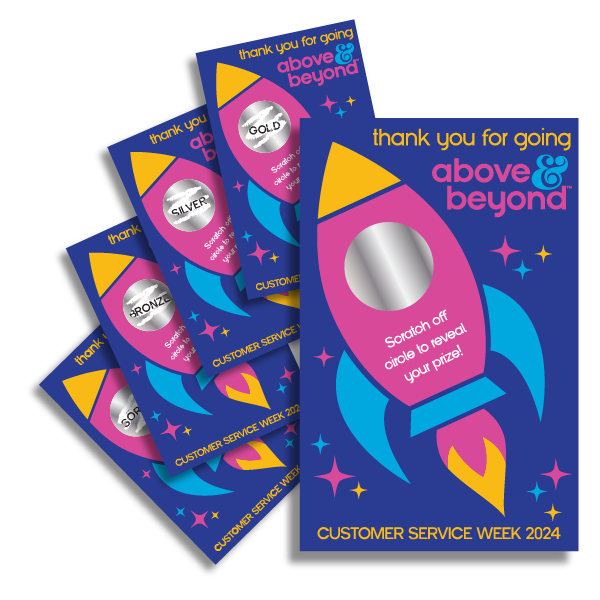By Abimbola Mohammed
The 2024 Customer Service Week has come and gone. Nigerian product and service brands, like their counterparts all over the world celebrated the annual event real-time and across all media platforms with fanfare.
Beyond the glitz, glamour and razzmatazz during the globally acclaimed event some of the questions that truly agitate the minds of most consumers are: “where is the justification for some of these jamborees? Why are many Nigerian consumers still having unresolved disappointing experiences with poor service deliveries and poor product offerings across sectors, including telecoms, banking, Fast-Moving Consumer Goods (FMCG) and aviation among many others?
Rather than bridge the gap between promise and reality, the chasm between brands and their customers has continued to widen, which makes every brand initiative presented by most brand owners look like mere jamborees.
For businesses and brands to thrive in a country like Nigeria with well over 200 million people, the need to prioritise consumer-centricity cannot be overemphasised. Despite intense competition, companies that truly understand and cater to the needs of their customers are the ones making waves and achieving success in the country’s dynamic market.
Feelers emanating from the industry reveal that, beyond the facade of these festivities, fanfare and media cacophony surrounding Customer Service Week, many Nigerian businesses and brands treat the occasion as a mere symbolic gesture, lacking genuine commitment to delivering quality customer service. While some industry watchers posit that their actions are driven by self-interest, seeking to draw attention to themselves, others accuse them of disregarding the pressing issues and feedback from customers, ultimately neglecting the very people they serve.
For instance, telecommunications companies often promise uninterrupted, high-quality service networks, but in truth their customers usually get hoodwinked with failed promises.
Even when customers report poor network coverage through voice calls or online portals, their queries often linger unresolved for days and weeks, while those who visit their brick and mortar offices to rectify an error or another spend days and weeks on endless queues. Callers are frequently kept on hold for extended periods, only to have their issues unaddressed.
Furthermore, data bundles promised to last months, depending on the subscription plan, mysteriously deplete within weeks, leaving customers frustrated.
The banking sector is not left out. A prominent tier-one bank enthusiastically observed Customer Service Week, yet simultaneously suffered a debilitating network collapse the same week. This widespread disruption severely impacted millions of customers, exposing a glaring disparity between promise and performance.
The irony of these is that those customers who patronised the bank in question will not be compensated for the misfortune they have suffered during the period.
Nigerians also face another daunting hurdle in the banking sector, where they’re forced to use their hard-earned money to buy cash from Point of Sales (POS) operators, despite having funds in their bank accounts. It’s alarming that some banks now restrict withdrawals to less than N20,000 within banking halls.
This raises pressing questions: How do POS operators and money sellers access the cash they use for transactions? Why must Nigerians pay extra to access their savings money which further exacerbates their economic hardship?
The aviation industry is plagued by numerous ticketing issues and missed flights due to unauthorized schedule changes. Passengers are often left stranded at the airport when flights take off without prior notification. Furthermore, cancellations occur without tangible explanations, valid reasons or due compensation.
Ironically, Nigerian airlines participated in the recent Customer Service Week celebrations, despite these persistent problems. This raises questions about their commitment to genuinely improving customer experience.
How can Nigeria as a nation begin to make brands and companies live up to expectations in terms of meeting customers’ expectations?
Highlighting the imperative for brands to prioritize consumer-centricity, industry experts across various sectors advocated for delivering tangible value to customers, rather than superficially chasing trends or creating a facade of consumer focus.
Speaking on the significance of Customer Service Week, Winston Ailemoh, Management & Commercial Consultant and lecturer at BPP University, emphasized on the growing importance of customer experience in today’s marketplace on his LinkedIn page.
He maintained that businesses that excel in delivering superior customer experiences often see higher retention rates and strong customer advocacy, affirming that customer experience goes beyond transactions; it builds trust and drives loyalty.
Sunkanmi Ogunniyi, Founder the Lagos Weekender, pointed out that any marketing efforts devoid of empathy may not sail safely, especially in an economy that is driven by people who value emotional relationships.
“If you are running a business and you want to have stable revenue, one that increases and you want to make sure that your customer base is increasing, empathy is very important in ensuring that you have loyal customers.”
In a separate interview, Doris Ohanugo, Executive Head, DSTV Media Sales, Multichoice Nigeria, also noted that every forward-thinking business that aims for a long-term growth must see the customer as its bedrock, and must focus on making its driving force by developing and deepening customer satisfaction culture.
She added that brands need to create customised and personalised kinds of service for customers to derive satisfaction in their journey.
Also speaking to MARKETING EDGE, Obinna Inogbo, Principal PR Executive at Worktainment LTD, stated that businesses struggle with persistent customer complaints and unresolved issues due to a crucial oversight, lacking a dedicated corporate communication expert.
Inogbo emphasised that companies without a corporate communication professional often fail to address customer concerns promptly, leading to lingering problems.
“I think brands are doing the best they can. It’s very easy to be on the outside of an organisation and criticise what they do. No organization wants their business to stop. Brands in Nigeria do listen. I was pleasantly surprised recently when a well-known health brand I patronised copied a complaint email I sent regarding their delay of a service to their senior managers and those senior managers called me separately and resolved the issue by coming to my home address instead of me going to them.
“There are still organisations in Nigeria that don’t have corporate communications/public relations departments and this is a big oversight as corporate comms/PR engage in social listening and environmental scanning. Organizations in Nigeria that don’t have corporate comms/PR should invest in them to be able to know how customers feel,” he advised.
Regulatory bodies like National Agency for Food and Drugs (NAFDAC), Federal Competition and Consumer Protection Commission (FCCPC,) and Nigeria Communication Commission (NCC) are actively addressing customer complaints and concerns. However, businesses and brand owners should not rely solely on regulatory intervention. Instead, they should prioritize customer satisfaction while proactively, anticipating and resolving issues before consumers complain.






Comment
No comments found.